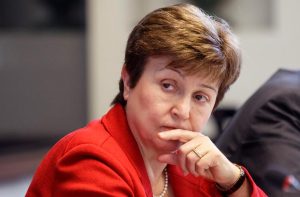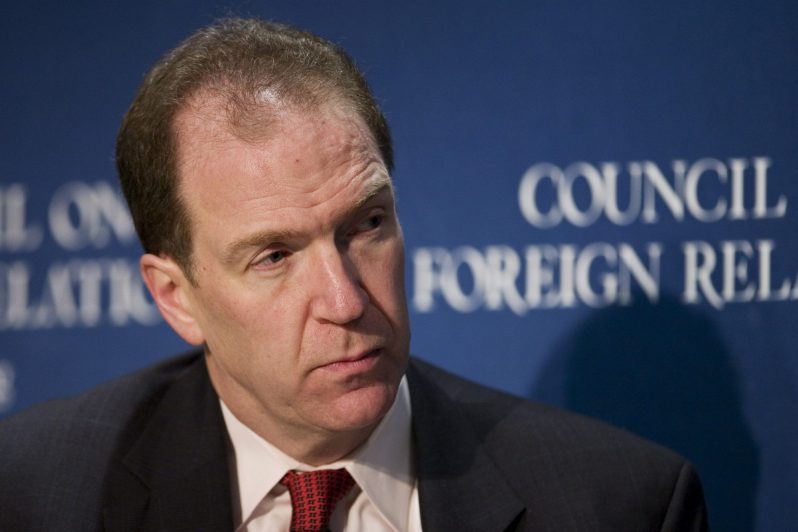– World Bank, IMF urged to provide greater measures
– tourism halt threatens Region’s economic survival
IN an earnest letter on behalf of the Caribbean Region, Prime Minister of Antigua and Barbuda, Gaston Browne, has written to the World Bank and International Monetary Fund (MF) requesting specific financial attention, as the Region grapples with significant economic loss linked to tourism and braces for the catastrophic effects of the hurricane season.
In the letter sent to IMF Managing Director, Kristalina Georgieva, and World Bank Group President, David Malpass, Browne requested a suspension of per capita income as a criterion for concessional financing; debt relief, including suspension of debt payments, write-offs of aged debt, particularly by the Paris Club, and budgetary support through a mix of grants and low-cost loans on a country by country basis.

He explained that since the rise of the coronavirus (COVID-19) to a pandemic, the Caribbean Region has been hit with an unexpected economic decline that has already stripped it of over 20 per cent of its Gross Domestic Product (GDP) in some cases, with possibilities of prolonged deterioration.
With lower revenues, Caribbean governments are still working assiduously to address their cases of the virus and provide relief to their citizens, many of whom are now without jobs and have been placed on the breadline. “Several of our countries are highly tourism-dependent. The stoppage of airlines and cruise ships has devastated our tourism industry. Hotels and other tourism facilities have been forced to close because of a loss of business as well as domestic measures to try to contain COVID-19 and to arrest its spread. The effect of this is a significant and unsustainable drop in government revenues, including foreign exchange, occurring simultaneously with demands for increased government spending to institute new health facilities and to provide such assistance as possible to families whose only money earner has been laid-off,” Browne stated in his letter.
He said that the pandemic is showing every sign of getting worse; its global consequences moving to depths lower than the 2008 crisis which crippled the world of years.
As of March 30, 2020, COVID-19 cases in the Caribbean stood at over 1,800 with deaths climbing daily.
The Prime Minister added that while the Bank and IMF have proposed to aid Development Association countries, including their financing and debt relief needs, and have considered a request from Haiti for financial support through the Fund’s Rapid Credit Facility, this is not enough to sustain the region for what it will face.
Hurricanes in the Region are the most frequent of natural disasters, and Browne stated that, even with the aforementioned challenges, the hurricane season is still in the horizon and it likely to bring its fair share of challenges.
Browne said: “We are also mindful that the Caribbean region is now two months away from the annual hurricane season, predicted this year to be above average with 16 named storms of which 7 will be hurricanes: 3 to 4 being major ones. In the region’s already precarious state, the effects of a hurricane would be beyond catastrophic.”
He said that such a continuance in deterioration would only translate into high unemployment and increase in poverty levels which will give way to some forms of crime becoming rampant.
As Caribbean governments are faced with these “unbudgeted costs” he said that many will be set back in reducing their debt to GDP ratios and will incur new debt trying to manage its humanitarian crisis.
Added to this, he highlighted that there has been a huge decline in revenues and a necessary draw-down on foreign reserves to meet the cost of imports of medicines, medical equipment, and food.
Browne said that nations are struggling to manage the fiscal demands which are not the fault of their policies or failures and, in the best-case scenario, it will be at least a year before the tourism industry will return to any semblance of normalcy.
“Therefore, under the existing criteria, based largely on per capita income, these countries will not qualify for the considerations being given by the Bank and Fund to IDA countries, including financing needs and debt relief or even access to the Fund’s Rapid Credit Facility,” he stated.
“It is against this troubling background that my Government requests that, in the measures that the Bank and Fund are preparing for the meetings of their Governors in April and for consideration by G20 countries, proposals be included for small and vulnerable economies.”
The letter from the Prime Minister of Antigua was copied to Governors on the Boards of the Bank and Fund who represent Antigua and Barbuda and other Caribbean countries.




.png)









